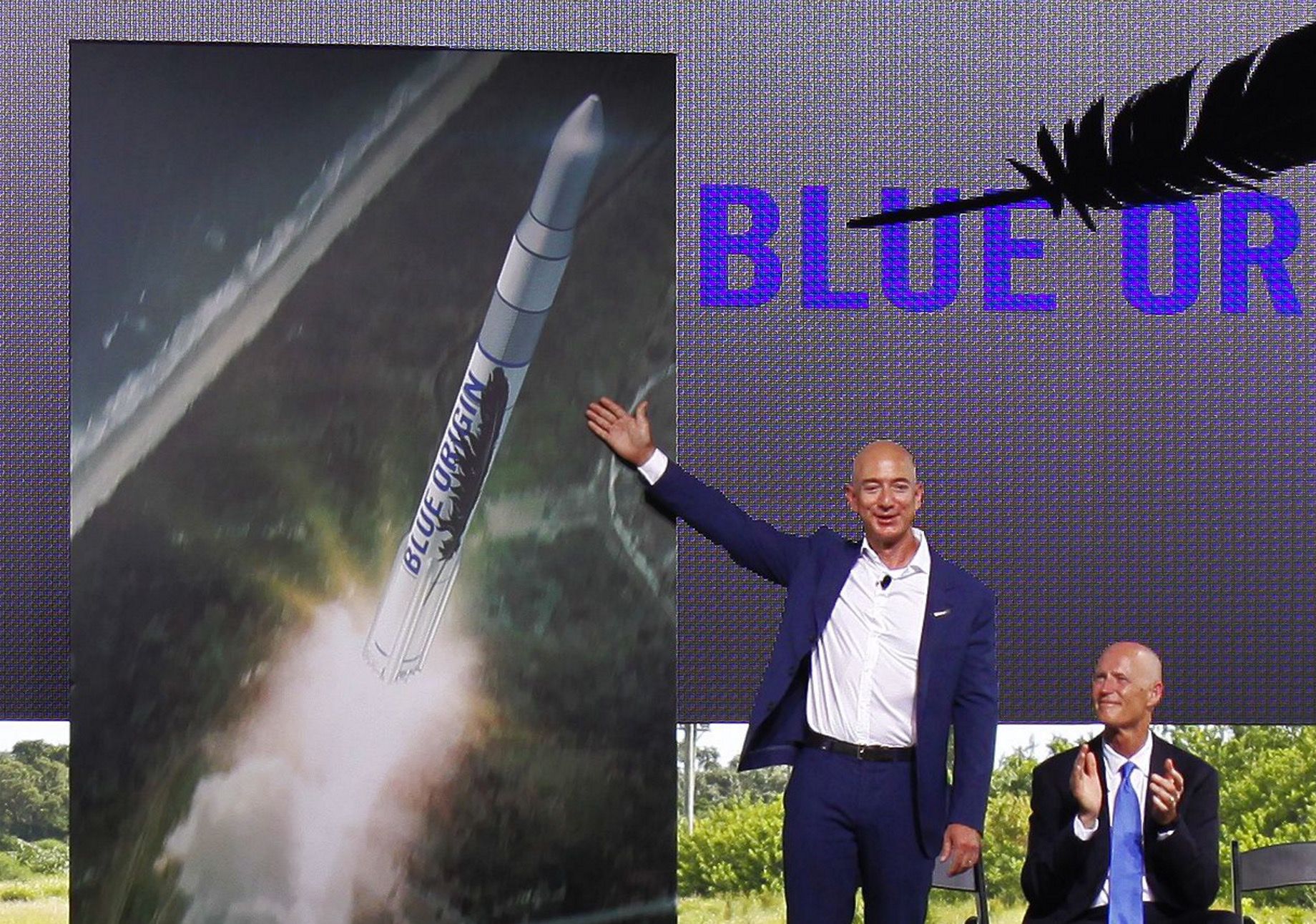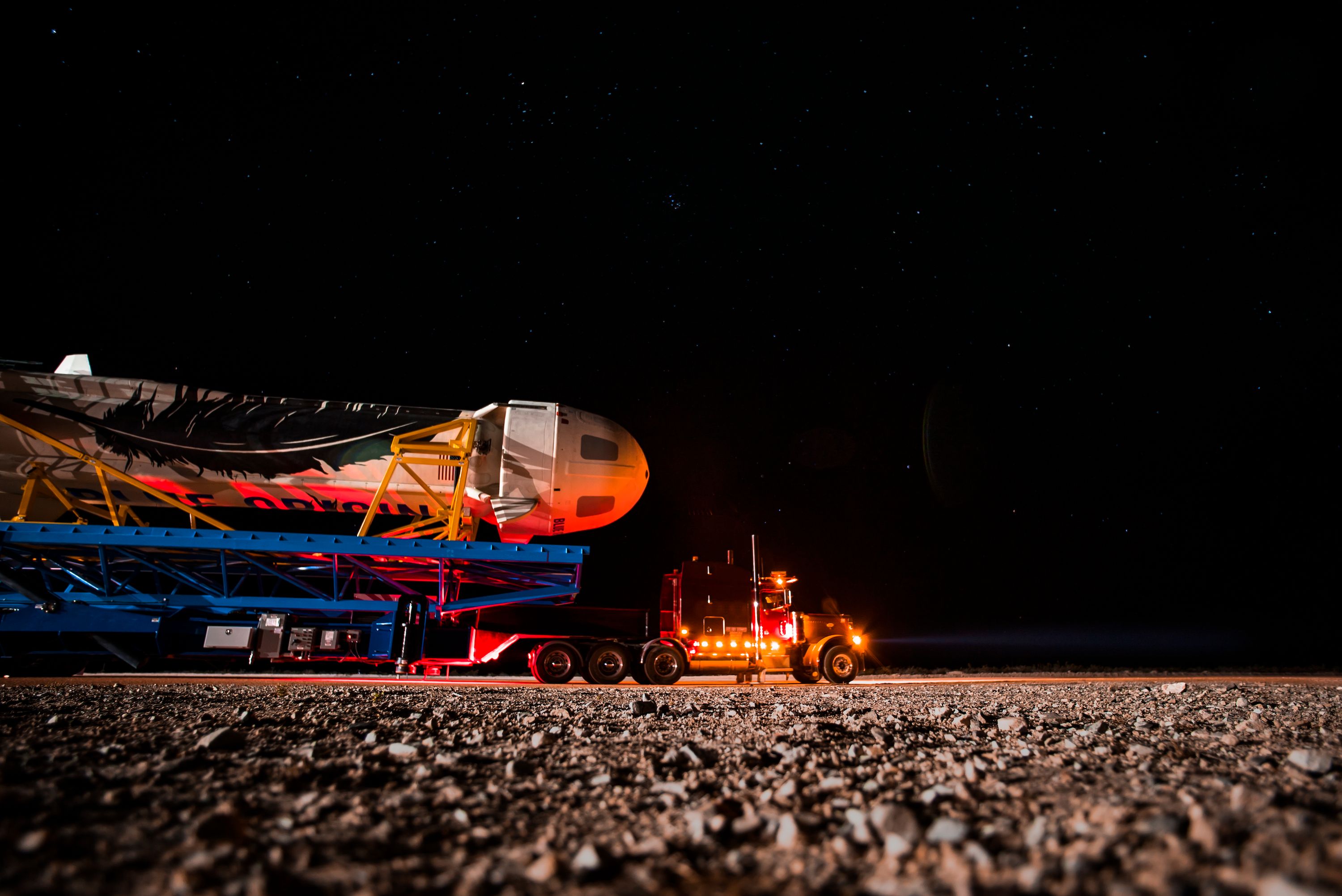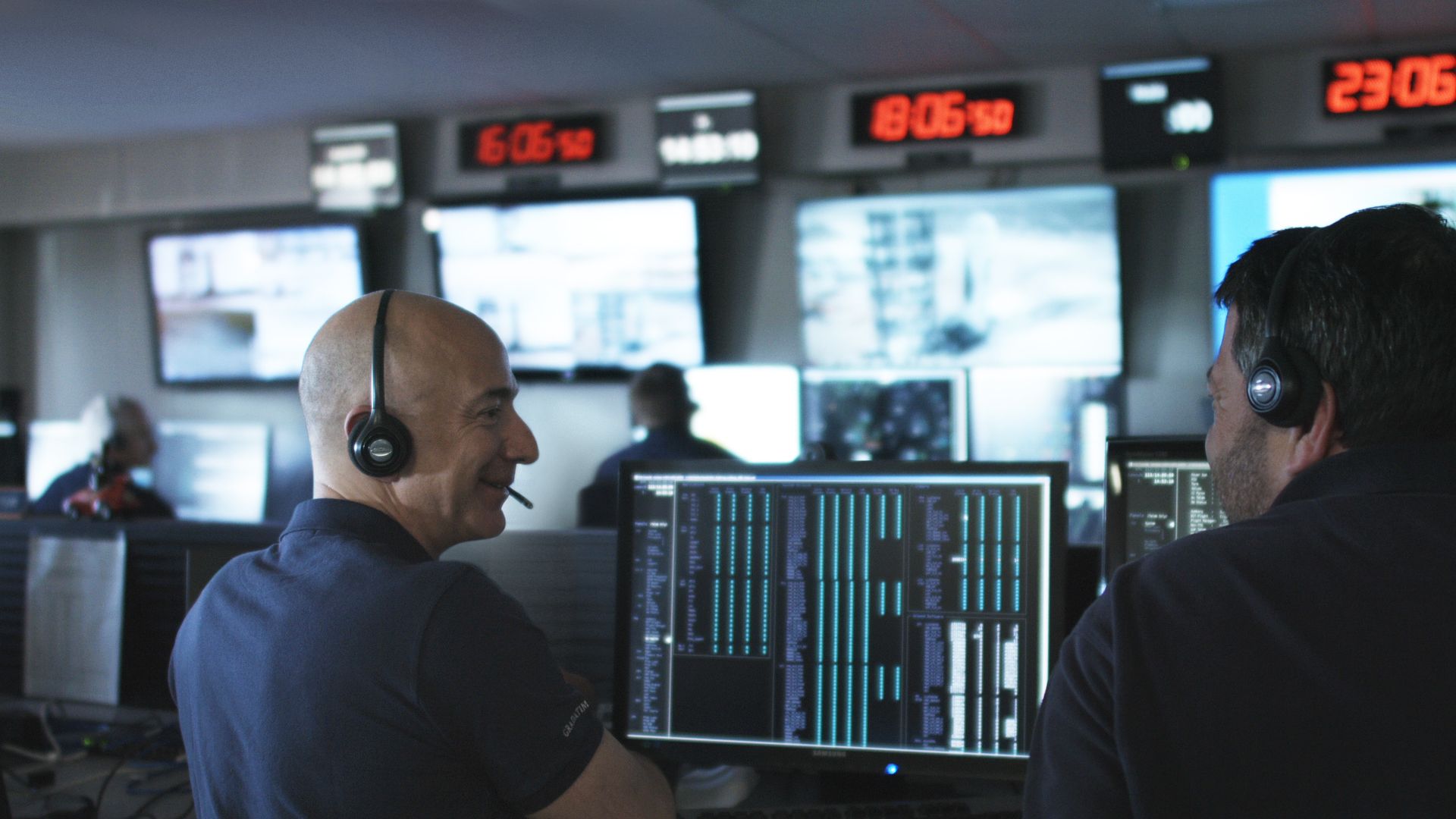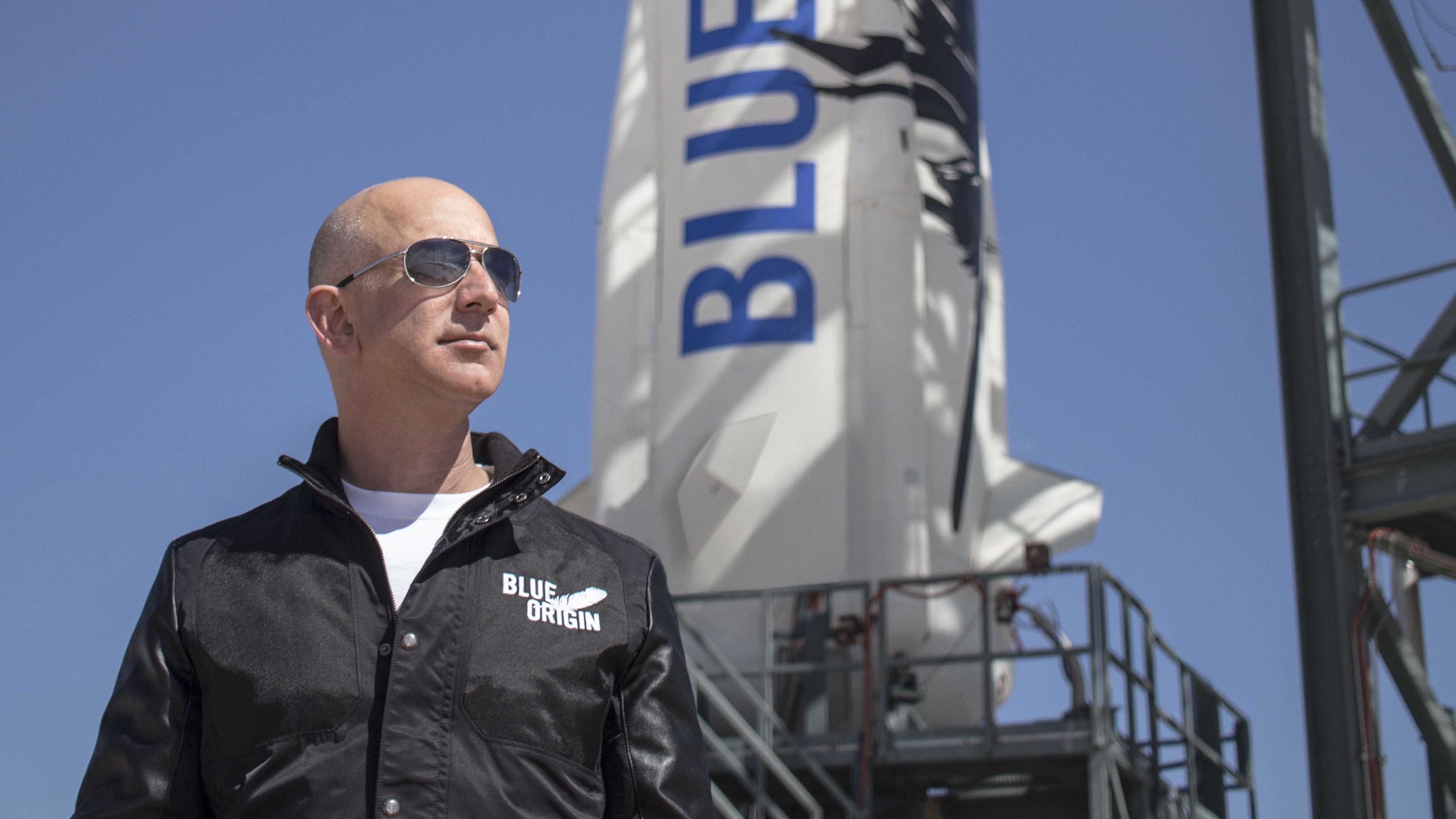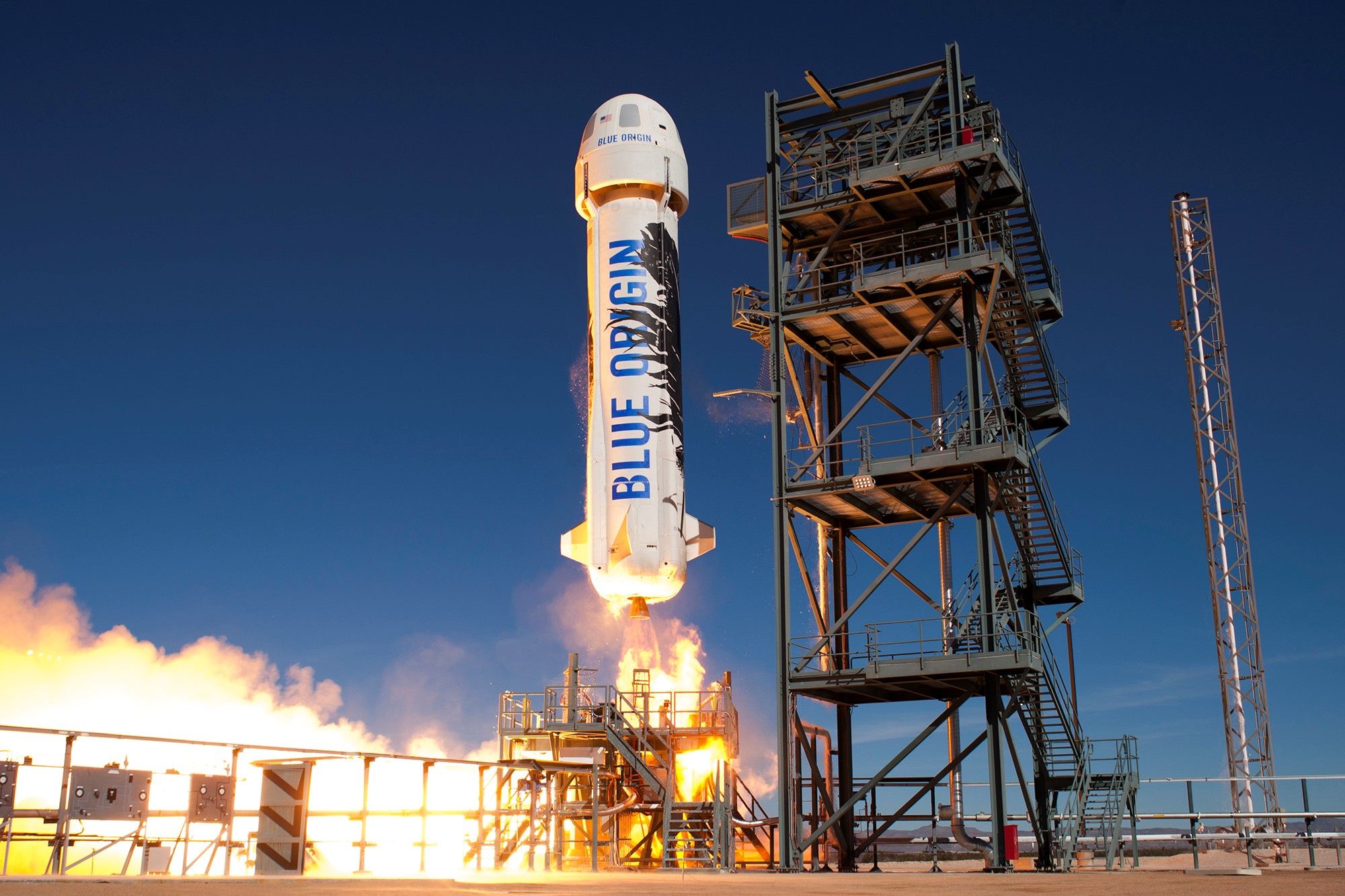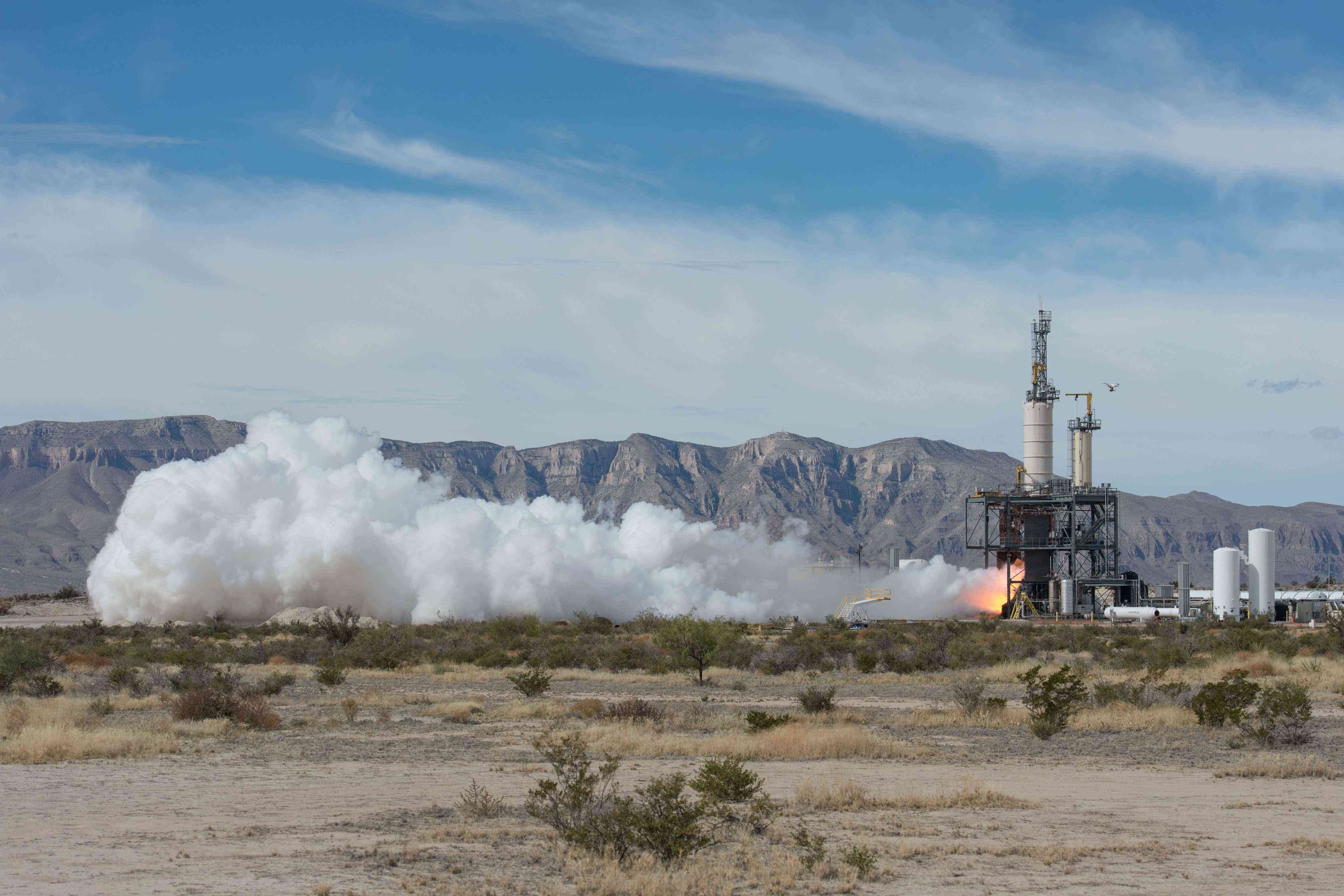Amazon.com's founder has stopped being so secretive about his private space company by letting journalists tour the venture’s site while also announcing that human space tourism will be possible in just two years.
That space company is called Blue Origin, and for lack of a better term, it can be described as Jeff Bezos' baby. He's been dreaming about space since he was 5 years old, and he's invested tonnes of money into making those dreams a reality. In fact, Blue Origin is on the fast-track to giving both SpaceX and Virgin Galactic a run for their money. We've explained all you need to know below.
Blue Origin: What is it?
Blue Origin is a private space company started by Amazon.com founder Jeff Bezos in 2000. It has about 600 employees working in a former Boeing airplane parts facility headquartered in Kent, Washington (about 17 miles south of Seattle, where Amazon.com is headquartered).
Blue Origin is sort of like SpaceX, another private space company, though SpaceX was started by Tesla founder Elon Musk. The two companies are similar in that they are helping morph the space business from NASA and aerospace giants like Lockheed Martin to private industry interested in launching satellites to orbit as well as developing technologies to enable private human access to space, among other things.
Blue Origin’s motto is “Gradatim ferociter,” which is Latin for “step by step, ferociously”. In an interview with The New York Times, which happens to be the first time Bezos opened the doors to his space company, Bezos explained that the moto reflects his opinion that “you can do the steps quickly, but you can’t skip any steps." In other words: you can't cut corners nor dillydally when it comes to aerospace.
Bezos has been dreaming of space travel and building rockets since he was a kid. When asked how much he has invested in the space venture, he said all the hi-tech equipment and employees have added up to “a very significant number”. Currently, Blue Origin makes some of its money by selling rocket engines to other companies, like United Launch Alliance, which launches satellites and spaceships.
- READ MORE: Blue Origin's website
Blue Origin: When will it take tourists into space?
According to The Guardian, Blue Origin expects to take tourists into space by 2017. Jeff Bezos admitted this during a media tour in March, when he invited 11 journalists to tour his venture’s research and development site outside of Seattle. The first tourists will not be paying customers, but thousands have expressed interest in paying for a trip on a suborbital craft, he claimed.
The company isn’t taking deposits yet - unlike its other main rival, Virgin Galactic, a spaceflight company founded by Sir Richard Branson in 2004. It is developing commercial spacecraft, with the purpose of providing suborbital spaceflights to paying space tourists. It also conducts suborbital launches for space science missions and orbital launches of small satellites. It eventually plans to provide orbital human spaceflights too.
Virgin Galactic unveiled its latest SpaceShipTwo spaceplane on 19 February 2016 at a ceremony at the Mojave Air and Spaceport in California. Professor Stephen Hawking dubbed it the VSS Unity. This spacecraft will bring space tourists into sub-orbital space in the near feature. Virgin Galactic has not yet set a firm timeline for carrying tourists into space, but pre-sale tickets for the trip cost $250,000 (£160,000) each.
Bezos said he doesn't want Blue Origin to be first private company to offer space tourism. He prefers to focus on safety and perfecting equipment by flying as many as 100 suborbital flights a year. Keep in mind Virgin Galactic's first SpaceShipTwo spaceplane broke apart during its fourth flight in late 2014 due to a co-pilot error. Co-pilot Michael Alsbury died in the accident.
- READ MORE: VSS Unity explained
Blue Origin: Has it launched anything yet?
Blue Origin has launched a ship twice, and it landed safely.
It plans to keep testing, though it wants to switch to ships being built to test human flight. Bezos's company most recent successful landing and relaunching of the The New Shepard rocket into space occurred late last year. SpaceX has attempted the same with its Falcon 9 rocket, but a smooth landing only happened once. Space has yet to send the same ship off Earth twice.
The New Shepard and the Falcon 9 have different designs and missions - even though they're both reusable. SpaceX's Falcon 9 rocket is thin and tall and designed to launch payloads like satellites and cargo into orbit, while The New Shepard is thicker and shorter and can't go as far up as the Falcon 9. It's only designed to take people to sub-orbital space for about 4 minutes.
- READ MORE: What is Space X's Falcon 9?
Blue Origin: Does it work with NASA at all?
Blue Origin has been contracted to do work for NASA on several development efforts. According to ArsTechnica, it has received about $25 million from the national space agency during its 16-year existence.
The company was awarded $3.7 million in funding in 2009 by NASA, for instance, via a Space Act Agreement for development of concepts and technologies to support future human spaceflight operations.
- READ MORE: NASA/Blue Origin Space Act Agreement (PDF)
Blue Origin: Why is it so secretive?
Bezos told The New York Times that Blue Origin was not necessarily secretive but wanted to avoid overhyping Space.
It appears Bezos will be more transparent going forward however when it comes to Blue Origin developments, because he told journalists: "We will not be strangers." Later this year, Blue Origin will give more details about its designs for the larger rocket launching from Cape Canaveral.

